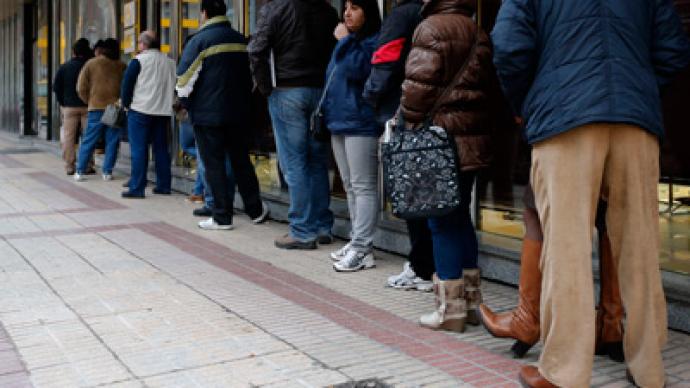In a major announcement, Greek Prime Minister Kyriakos Mitsotakis unveiled €1 billion in permanent economic support measures for 2025, fueled by Greece’s robust 2024 fiscal surplus. Starting next year, renters will receive an annual rent refund, 1.5 million low-income pensioners and vulnerable groups will get €250 yearly, and €500 million will boost public investments. “These measures reflect our structural progress, turning national success into tangible benefits for Greeks,” Mitsotakis said.
Tag: Eurostat
Greece’s fiscal performance in 2024 has exceeded expectations, with Eurostat confirming a primary surplus of 4.8% of GDP—nearly double the initial target. The overall fiscal balance also shifted into surplus, highlighting the country’s strong economic rebound and adherence to EU fiscal rules.
In 2023, maritime transport remained the dominant mode of freight movement within the EU, accounting for over two-thirds of all goods transported. Greece ranked among the top performers, with 96.4% of its freight moved by sea, highlighting the continued importance of shipping for coastal nations, according to new Eurostat data.
In January 2025, the EU recorded 66,800 first-time asylum applications—an 8% rise from the previous month but 24% lower than a year earlier. Venezuelans became the top group of applicants, overtaking Syrians for the first time since 2022. Greece ranked fifth in total applications and had the highest rate per capita, while also receiving the second-highest number of unaccompanied minors.
In 2023, EU governments allocated €227 billion to defence, representing 2.7% of total expenditure and 1.3% of GDP. Greece ranked among the top spenders, dedicating 2.2% of its GDP to defence, following Latvia, Estonia, and Lithuania. The increase in defence budgets across the EU reflects a growing focus on security amid geopolitical tensions.
Greece ranks 26th out of 27 EU countries in purchasing power, surpassing only Bulgaria, with a per capita GDP 30% below the average, according to Eurostat. The data underscores a stark economic divide, with Greece trailing Southern European peers like Portugal, Spain, and Italy, while Luxembourg and Ireland lead the bloc.
In his weekly address on March 16, 2025, Greek Prime Minister Kyriakos Mitsotakis announced the University of York’s plans to establish branches in Greece and celebrated Moody’s upgrade of Greece to investment grade. Highlighting government initiatives in health, justice, and education, he also addressed economic progress, urban redevelopment in Mati, and a commitment to legality, including crackdowns on crime and deceptive business practices.
New data from Eurostat shows a record drop in the number of children born in the European Union for the year 2023, with only 3.67 million births recorded, marking a 5.4% decrease from the previous year. This decline underscores the demographic crisis in the EU, with Greece having one of the lowest fertility rates at 1.26 births per woman.
In 2023, Greece recorded the highest levels of perceived crime, violence, and vandalism in the EU, with 23.7% of those at risk of poverty reporting such issues. The country also led among those not at risk, with 20.2% experiencing similar concerns. These figures highlight Greece’s ongoing challenges in public safety compared to other EU nations.
Greece recorded the highest rates of first-time asylum applications in Europe at 79.5% according to…
Greece has amongst highest rates of female scientists and engineers in Europe at nearly 48.4%…
Rents in Attica have skyrocketed by up to 100% over the past eight years, pushing both low-income and middle-class households to the brink. Despite government efforts to regulate the market, demand continues to surge while wages fail to keep pace. With a severe housing shortage and thousands of vacant properties remaining off-market, Greece now holds the highest rental difficulty rate in the EU. As living costs soar, the crisis threatens to spiral further, increasing pressure on policymakers to take urgent action.
EU ports recorded 395.3 million passengers in 2023, marking a 5.8% increase compared to the previous year. Greece and Italy led the way in seaborne passenger transport, with Messina in Italy being the busiest EU passenger port. Despite the increase, passenger numbers were still 5.5% lower than pre-COVID levels in 2019.
House prices in the EU rose by 3.8% and rents by 3.2% in the third quarter of 2024 compared to 2023, with Greece standing out as the only country where rents decreased (-16%). Eurostat data highlights significant disparities, including house prices tripling in Hungary and Estonia since 2010, while Italy saw a decline.
Greece saw the second-lowest food inflation rate in the EU in November 2024, with prices rising by just 0.4% compared to the previous year. This marks the lowest increase since May 2021, reflecting a significant easing of financial pressures on households. While the general consumer price index rose by 3%, food prices dropped by 1.2% from October to November, second only to Malta’s decline.
In 2023, rail transport fatalities in the EU rose to 841, reversing a decade-long decline. Greece recorded a staggering 22.3 deaths per thousand kilometers of railway track, the highest in the EU. The majority of fatalities involved unauthorized persons on the tracks (58%), followed by accidents at level crossings (27%). This troubling trend highlights significant disparities in rail safety across Europe, with Greece facing particular scrutiny as it grapples with high fatality rates.
Eurostat announced its estimate for food inflation for November 2024, with Greece significantly below the…
Greece’s unemployment rate fell to 9.8% in October 2024, down from 10.8% a year earlier but up slightly from September. While employment rose, concerns remain about high youth and long-term unemployment.
Greece recorded the highest rate of first-time asylum applications in the EU relative to its population in August 2024, with 59.9 applications per hundred thousand people, far exceeding the EU average of 15.4. While total EU asylum applications fell by nearly 25% compared to last year, Greece remains a key entry point for migrants, highlighting the ongoing challenges of equitable burden-sharing across member states.
Agricultural output in the EU declined by 1.5% in 2023, with Greece experiencing the steepest drop at 16%. The sector’s contraction was driven by a 2.3% fall in the volume of output, despite a slight increase in prices. While some countries, like Hungary and Slovakia, saw growth, the overall agricultural value in the EU fell, with crops suffering a 6% decrease and animal products rising by 2%.




















